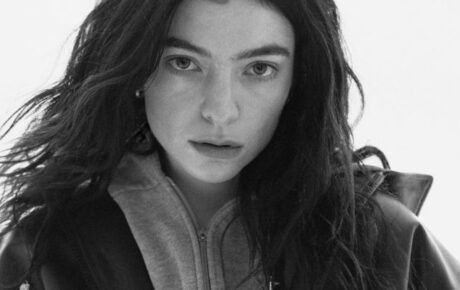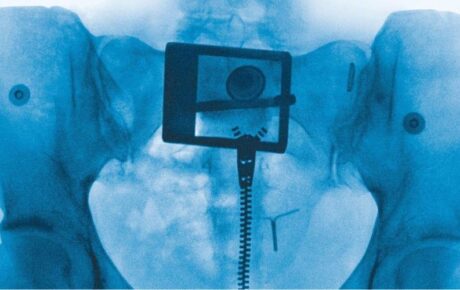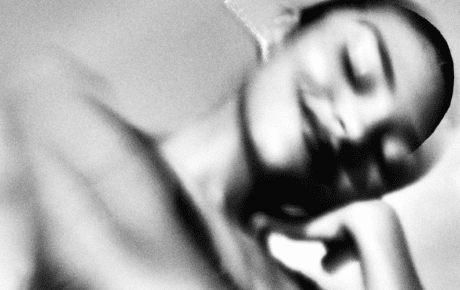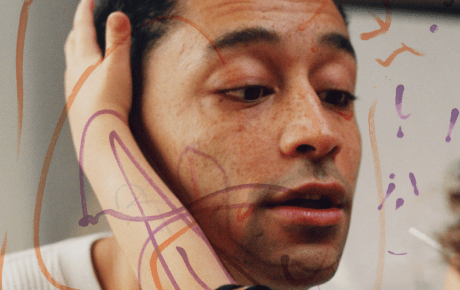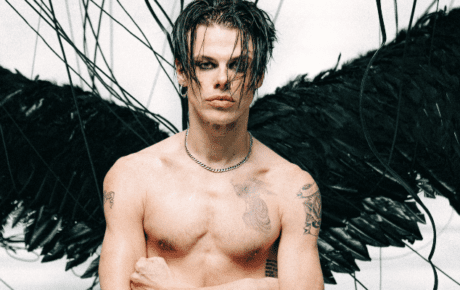“By now I don’t need a f**kin’ introduction,” crows a self-assured Halsey on ‘Lilith’, the weighted 90s hip hop track that cements itself neatly in the industrialism of their fourth studio album If I Can’t Have Love, I Want Power. The dangerous line between ego and humility, it seems, has always been Halsey’s favourite concept. Since their debut EP at 19, the star has tried to navigate the dichotomy of existing as both a deity and an everyday woman. Seven years deep into their multicoloured pop stardom, the now 26-year-old has certainly earned themself the indulgence.
Produced by Nine Inch Nails’ Trent Reznor and Atticus Ross, IICHLIWP finds Halsey where they’ve always longed to be. Not only is it sonically the record the star has always wanted to make, but it encapsulates the woman they’ve spent all these years growing into, even if sometimes they’re not sure. On the Taylor Swift-meets-Courtney Love ‘You asked for this’, a track that could well and truly background a 2000s film, the star tries to reassure themself “go on and be a big girl, you asked for this now” before crying in the outro “I want my cake on a silver platter … I want everything I asked for.” From a misfit teen to a heartbroken harlequin to now a mother (Halsey and her partner Alev Aydin welcomed their son Ender Ridley into the world July 14th), the grunge-pop, alternative-punk record feels like one big deep breath they’ve been holding in. Halsey is exhausted, but they’ve learnt it’s a simple exchange for exhilaration. Over distorted instrumentals and theatrical bellows, they are simultaneously screaming out in fury while being the happiest they’ve ever been.
Opening with the grandiose of ‘The Tradition’, a haunting piano ballad that sees Halsey spit “take what you please, don’t give a damn. Ask for forgiveness, never permission,” it becomes clear that at first Halsey has chosen power. More specifically, their own empowerment as not only a woman but a pregnant woman. And therein lies the album’s core concept: the joys and horrors of pregnancy and the psychological complex of the Madonna and the Whore. In psychoanalytic literature, the Madonna-whore complex argues that women can only exist as two separate beings in the minds of men: one a saintly Madonna and the other a desired temptress. For Halsey, IICHLIWP is the idea that a woman’s body can coexist as both a weapon of entertainment and a vessel for life, and that that very revelation is both beautiful and horrifyingly disturbing.
But the album is more femme fatale than feminist, with any hint of womanhood providing a sting. IICHLIWP isn’t a celebration of pregnancy of course, but a sigh of relief as Halsey sheds the old parts of themself in preparation for their new beginnings. In the spinetingling The Cranberries-esque ‘Bells in Santa Fe’, Halsey questions their traditional role as a woman, “I could keep your bed warm, otherwise, I’m useless,” then seems to answer it themself in the electronic ‘Girl is a Gun’ with the opening line “I feel lighter in the waistline with no arms around me, no spit in my teeth. No, I’m not your daydream, I won’t have your baby.” The angry punk hit ‘Easier than Lying’ is a knockout at only track number 3 and finds Halsey at possibly their most grown in the bridge, “losing you is easier than lying to myself that you love me” and the 90s tinged ‘honey’ (thanks to drums from Dave Grohl) turns a girl of interest into a wild, elusive lover.
The search for divinity continues throughout IICHLIWP, with Halsey comparing themself to several mythological figures. On the aforementioned ‘Lilith’, the star uses the Judaic mythological she-demon as a muse for their own destructive tendencies and they literally fight their ego with ‘I am not a woman, I’m a god,’ deciding “I am not a martyr, I’m a problem. I am not a legend, I’m a fraud.” In the swanky ‘The Lighthouse’, Halsey paints themself as a siren, an Ancient Greek mythological creature who lures in sailors to shipwreck with their enchanting song and charm, “so I showed him all my teeth and then I laughed out loud, ’cause I never wanted savin’, I just wanted to be found;” the latter two tracks appearing beautifully after ‘Whispers’, Halsey’s ode to their bipolar disorder.
The album’s biggest revelation though comes about halfway through, when we start to see Halsey’s scale lean more towards love as they realise they’ve never wanted power in the first place but rather a family to build a life with. And it’s in that realisation that the star worries about the Venn diagram of love and death; the idea of finally grasping something so precious and the terrifying fear of one day losing it. In the gorgeous acoustic ‘Darling’, Lindsey Buckingham provides a finger-plucked backdrop against Halsey’s love letter to their child. “Foolish men have tried,” they effortlessly sing, “But only you have shown me how to love bein’ alive.” The dreary Evanescence-like ‘1121’ references the date Halsey found out they were pregnant and sees them admit they’d never die for love, “but ever since I met you, you could have my heart and I would break it for you.” But the real golden moment comes in the closing track ‘Ya’aburnee’, an Arabic term that translates into “you bury me,” the beautiful sentiment of not wanting to outlive a loved one because life without them would be unbearable. “I think we could live forever in each other’s faces,” goes the chorus, “because I’ll always see my youth in you.” With nothing but a heartbeat hum and their empty vocals, Halsey ends the record with a beautiful sense of untouchable peace. And phew, have they earned it.
Liked this article? Sign up to our UMUSIC newsletter to hear more from us!

